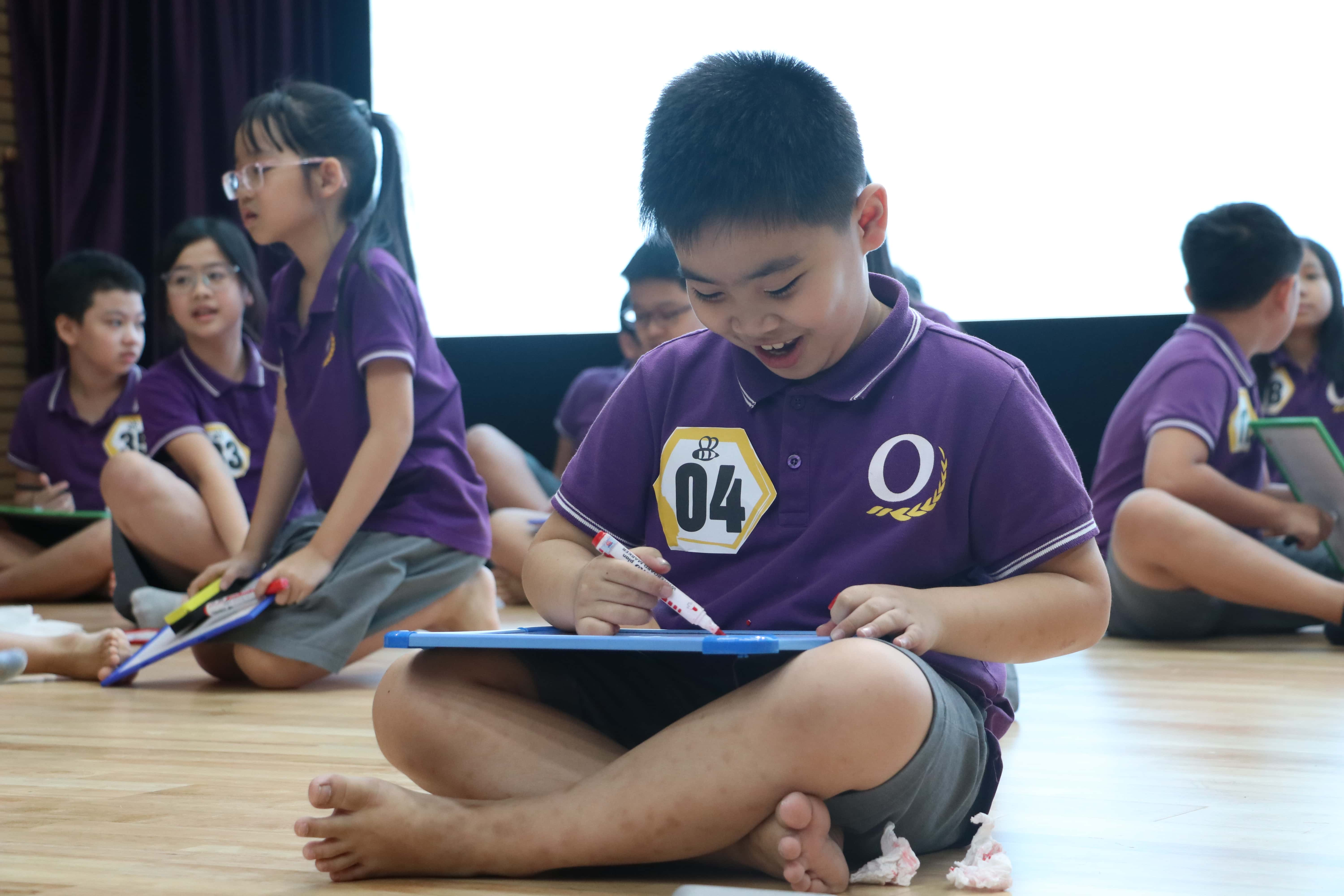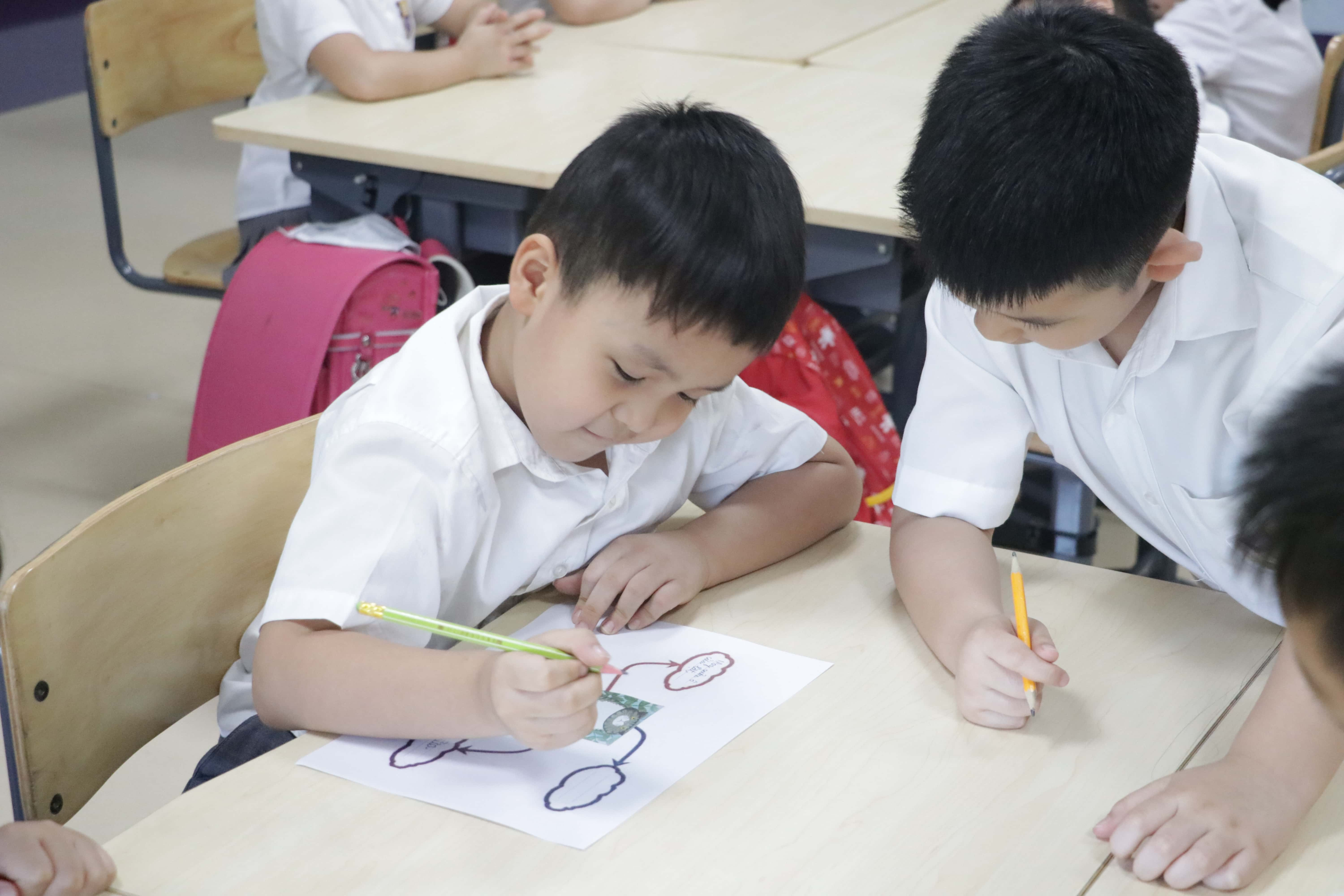
Building true language competency
24 September, 2021
In the modern world, English is no longer considered as the primary goal, but an instrument for learners to take advantage of knowledge acquisition, skill development, broaden and acquire deeper thinking, as well as shaping their outlook on life. Nevertheless, when the development speed of education is increasing, with too many subjects involved in the educational context, the limitation in terms of efficiency and long-term vision is exposed.
Some misunderstandings
Many parents, students and even teachers seem to have some misunderstandings about learning English, for example::
- Nativelike communication and pronunciation are considered the ultimate goals or even the only targets, despite the fact that children lack academic foundation and thinking.
- In the current learning model, grammar, traditional tests and specialized exams are being overly focused on, despite the fact that achieving high scores in those tests may not be a proof for real English proficiency.
- Preparation for standardized examination is being carried out too early and occupying the majority of time in the curriculum at school or English centers. However, the demerits are hard for many people to see. The most evident disadvantage of this teaching model is that it can hinder the true language competency and even students’ motivation.

The aforementioned aspect may bring about some positive impacts if it is scientifically controlled and balanced. However, by taking an excessive amount of time in learning, and being considered to be the ultimate goal by many of us, it can become an obstacle which prevents learners from developing the true and in-depth language competency.
In the modern day and age, English is and should no longer be limited within the “obsolete” scales of measure such as nativelike pronunciation, good control of grammar, high exam scores, passing specialized examinations, etc.

In order to promote students’ long-term development, support them in conquering different academic environments, working abroad, and other extraordinary learning environments , they need to be equipped with a solid language foundation, including comprehensive language skills, multidisciplinary knowledge and understanding about various aspects in life.
Language development process
At primary school, our curriculum focuses on promoting students’ natural development through a variety of materials (books, stories, videos, etc) and in real life. Beside developing language skills, it is also important to create more chances for students to observe and discover the surrounding world, instead of focusing only on language framework or examinations. By working in small projects or interacting with the real world, practical situations and actual people, the language competency will be developed in the most natural and comprehensive way.

From secondary school, academic level in main language skills increases gradually, so that students can have good preparation and reduce the amount of exam preparation at high school. The range of knowledge needs to be broadened and updated, and in every lesson, students can also practice and improve their language and foundation competency. Students will study with longer projects, reading, audio and visual materials to gain deeper understanding. The teaching materials are being gradually switched from ESL materials into native’s, which help develop students’ language competency faster and more comprehensively.

It is noteworthy that the balance between academic and creative aspects of a language need to be maintained. A curriculum focusing only on academic aspects is not suitable for students’ natural abilities and mentality at this age group. Creative and cooperative thinking of secondary school students need to be stimulated using various methods: story-telling, poetry, theater plays, song-writing and other creative activities, or projects related to real life matters, such as building anti-flood houses, designing eco-friendly products, etc.
At High school - the final preparation before higher education - students will approach and practice English like natives. Instead of studying English in seperated skills, students will start conducting research and learn more about wider and deeper academic subjects: Science, Economics, Religions, History, etc. The integration of language and knowledge will be used in learning projects: Model UN, debate, social study, community services, film-making, book translating, analysing and proposing solutions for practical problems of businesses, organizations in multiple areas.

Additionally, students need to balance between preparing for standardized exams, which are the basic requirements for entering higher education, and solidifying academic language competency, fundamental learning skills like researching, writing reports, analysing, reading comprehension, discussing, etc. This is important for learners to adapt quickly to new academic environments and conquer more pinnacles of knowledge.
Summary
An integrated, systematic and long-term vision is the key to train individuals with true language competency, with a foundation to succeed in any academic environment and occupations. English is more than a language. It is a tool for us to gain more knowledge, develop thinking and shape our view of life. That is the nature of sustainable education.



















